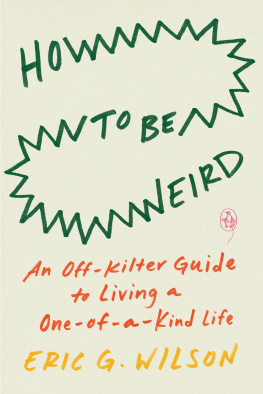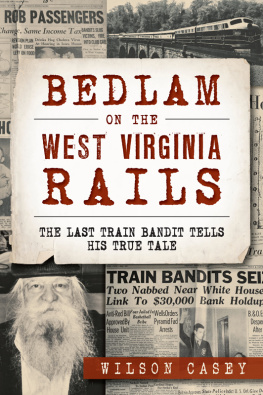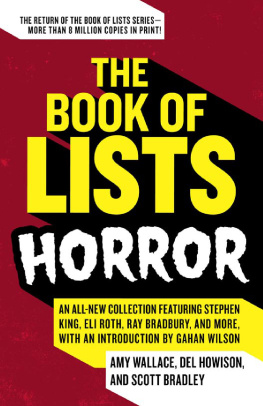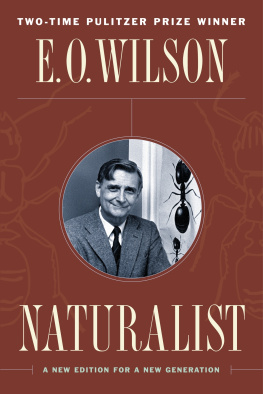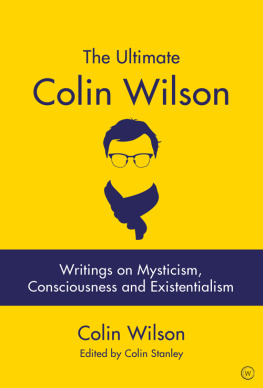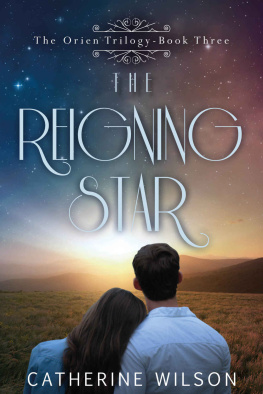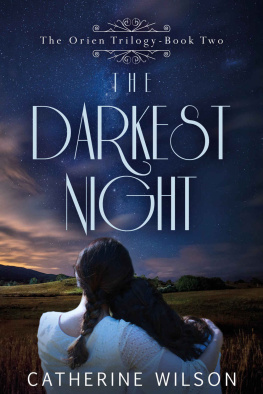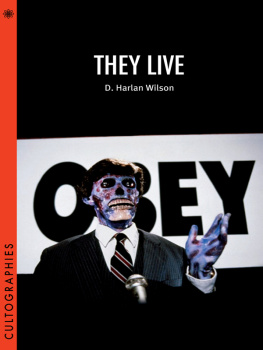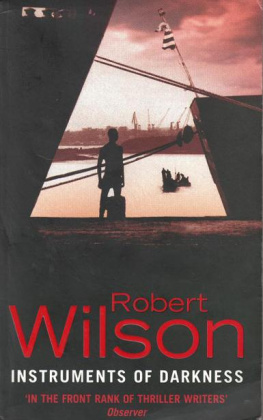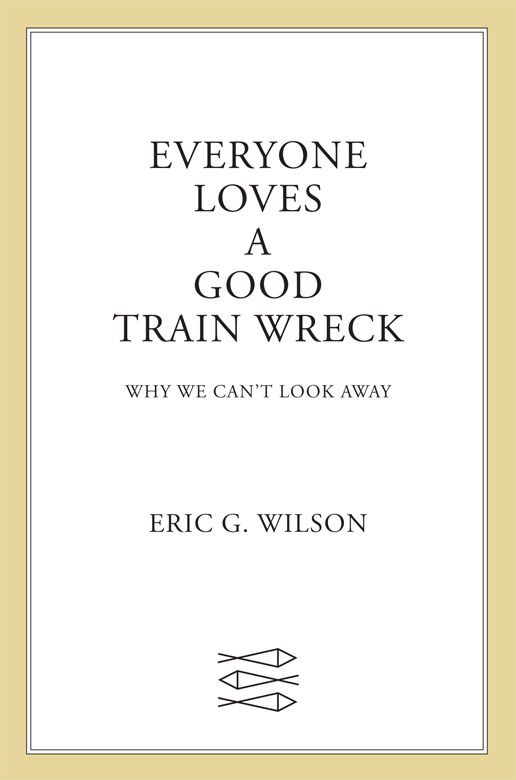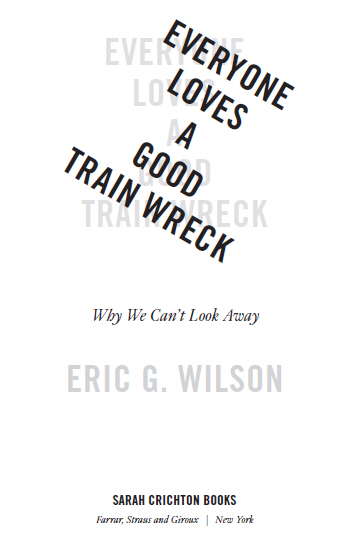
TO KIRK, MY BROTHER,
who turned me on to horror movies
The sinister, the terrible never deceive: the state in which they leave us is always one of enlightenment.
THOMAS LIGOTTI
Violence and smut are of course everywhere on the airwaves. You cannot turn on your television without seeing them, although sometimes you have to hunt around.
DAVE BARRY
The goal of all life is death.
SIGMUND FREUD
CONTENTS
Dont look.
Thats what she asked, more than once. I heard her distinctly each time, and told myself I should oblige, and even once partially turned my head in her direction, but I just couldnt take my eyes off the screen. I engrossed myself again, and again submitted to the anger, the sorrow, the fear, as well as guilts perverse pleasure: I felt that I shouldnt be doing this, but I was doing it anyway, and got a peevish thrill from my transgression.
It was evening, dinnertime, and this had been going on since morning, right before I left for work. I had just finished breakfast. I had my satchel over my shoulder. It contained my books for that days class (on Keatss To Autumn) and also my lunch (a peanut butter sandwich). I had my hand on the doorknob, ready to leave, when Sandi, my wife, ran up to me, phone in hand, and said, Turn on the TV.
I did, and there it was. Too slowly, a jet, brilliant white, wide enough to seat a hundred, plowed into a narrow rectangular tower, luminous and silver in the September sunshine. The blast silently boomed, and the skyscraper turned black billow, spume of flame: an immense sinister candle.
There was a stop, and the sequence rolled once more, soundless, with the same dilatory tempo. It repeated, each time more mesmerizing and meaningless, someone elses eerie dream. No words explained itfit it into a familiar story, with reassuring causalities and characters. It was unmoored destruction, sublime. I watched, and watched.
We all know what this was, and likely remember our need to witness the eruption one more time, and also to look when the events became more horrific: another fiery collision, and then buildings sucked to the ground, leaving only rubble and crushed loved ones.
Sandis voice broke my morbid trance that morning: Come here. When I faced her, she appeared to me in the fullness of her three-month pregnancy, holding in her smooth belly a little creature who would soon be pressed from the warm darkness into this glare.
We hugged, not confessing our terror: an infant in this Armageddon. We sat down together and watched the catastrophe worsen.
After an hour, I made my way to my office at the university where I teach. I had seen the attacks on the towers probably twenty times by then. I turned on my computer, went to the Internet, and found the scene again.
But I had classes to teach, and so reluctantly left the screen. I held the students only briefly in each of my three sections, telling them that we would pick up with Keats the next classeven his wisdom did not that day sufficeand urging them to go back to their dorms and call their families and friends. Between classes, I persisted in watching the footage, breaking only to call Sandi, to comfort and in turn take solace.
I returned home around five. Sandi was in the kitchen preparing dinner, food that would best nourish our baby. The small television beside the coffeemaker, like the other sets in our house, was off.
After giving my wife a hug, I clicked the set on: the conflagration in the sky, now strangely comforting, like a wound you cant imagine not having. More than that, the footage at this point was, as shocking as this might sound, gruesomely beautiful: swelling ebony smoke against the blue horizon. And the film inspired this staggering thought: Here is one of those rare ruptures from which history will not recover, and I am alive at its occurrence. I felt exhilarated, inappropriately, and I was ashamed.
Come on, Sandi said. Turn it off and help me chop the vegetables. Dont look.
But I did, though she asked me again to stop, and I continued into the night, brooding.
Dont look. Look. This refrain has played in my head much of my life, one voice telling me its wrong to stare at morbid events and another urging me to stare anyway, hard.
Its my turn to pass the accident on the side of the highway. I tell myself to keep my eyes on the road, to avoid being one of those rubberneckers who clog traffic just for some sick titillation. But decadent anticipation takes over; I realize Im going to gaze, and Ill enjoy the experience all the more because its frowned upon. I hit my brakes and gape, until an angry horn prods me forward.
In high school, I heard there was a fight behind the cafeteria. I hurried along with everyone else to see it. Elbowing classmates aside to get a better view, I felt shame mixed with excitement. Here was something savage, but also vital, one boy mauling another.
In both cases, and there have been many others, there was a compulsion to watch, like that tickle in the throat, followed by the irrepressible cough, or the awful urge to sneeze: once it activates, its impossible to contain. The only good of holding back is that it makes the imminent release more intense.
I imagine weve all felt that guilty rush before the morbid. The exploitation of a suicidal starlet, the assassination of a world leader; the hypnotic crush of a hurricane, the lion exploding into the antelope; the wreckage and the rapture, the profane and the sacred: whatever our attraction, we are drawn to doom.
Everyone loves a good train wreck. We are enamored of ruin. The deeper the darkness is, the more dazzling. Our secret and ecstatic wish: Let it all fall down.
Our modern, enlightened parents probably encouraged us to worship wholesome heroes and sunshine. They taught us to avoid the lurid. In the gloomthere lurks sin. Stay away from dead things.
But the corpse once had its day. In fact, separation of death from everyday life, as the historian Gary Laderman put it, is a fairly recent development. Up until the early years of the last century, people usually suffered and died in their own homes. Adults and children alike were intimate with deathits sounds and its smells, the agony of it, and its peace. Since the 1950s, though, the health-care industry has increasingly taken charge of death, as well as birth. Nowenticed by well-trained doctors, sophisticated medical technologies, and spotless roomsalmost everyone, understandably, goes to the hospital to die.
Or not. The medical establishment holds out this desperate hope: The good doctor, at any cost, will keep you alive. Heres how the historian Philippe Aris describes this fantasy. In the last century [d]eath ceased to be accepted as a natural, necessary phenomenon. Death is [now] a failure, a business lost. This is the attitude of the doctor, who claims the control of death as his mission in life. But the doctor is merely the spokesman for society. When death arrives, it is regarded as an accident, a sign of helplessness and clumsiness that must be put out of the mind.
The hospital hides the morbid, the macabre. The funeral home does, too. When the doctor bitterly loses his battle with the reaper, the mortician manages the damage. He shields us from the corruption. Through embalming, he slows the cadavers decay. He places the body in a handsome coffin that resembles a bed more than a receptacle of guts. And he prettifies the face so that it almost looks alive.
Most dont just abhor the corpse, but loathe all rot. Used to be, we might conclude our lunch of Kentucky Fried Chicken, a whole greasy box full, by wiping our hands with that damp, hygienic-smelling little paper towel provided in our packet of plastic utensils (including the spork). Now we glop our palms with hand sanitizer twenty times a day, bent on killing all those pathogens. Antibacterial soaps and antibiotics crowd our bathrooms. Plastic surgerya war on decayis becoming de rigueur.


